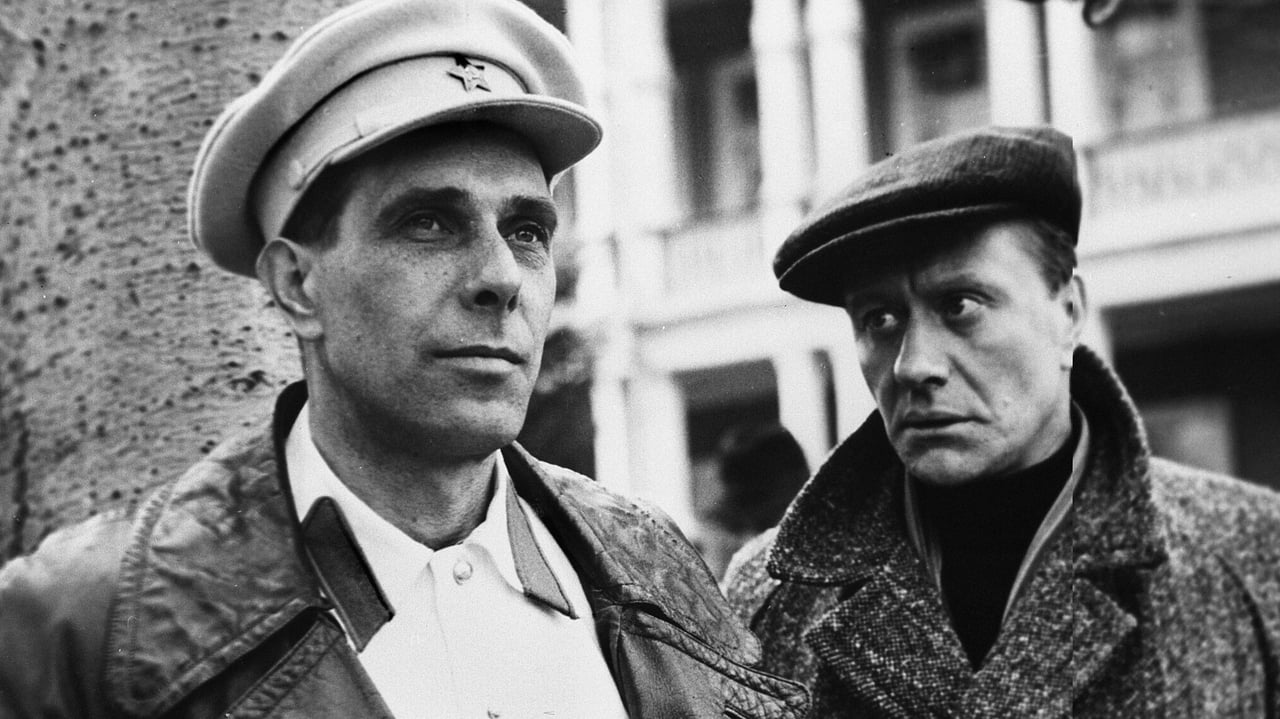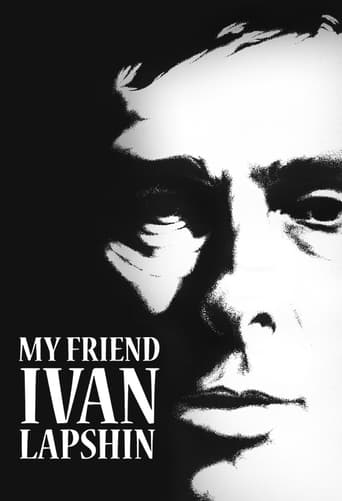



Instead, you get a movie that's enjoyable enough, but leaves you feeling like it could have been much, much more.
View MoreWhile it doesn't offer any answers, it both thrills and makes you think.
View MoreClose shines in drama with strong language, adult themes.
View MoreI didn’t really have many expectations going into the movie (good or bad), but I actually really enjoyed it. I really liked the characters and the banter between them.
View MoreGreat cinematography, great directing, great acting. But this is not what makes a film great because they are mere ingredients. What makes this movie great is the humanity of its characters. It does not matter how good or bad is the system. Honest souls will always have something true to tell you about, to show you that even in the middle of the winter, the cold, the night, the lack of plenty there are human dramas involving all that humans can do. Love, crime, compassion, friendship, assistance... Not like a solemn hymn to joy of life, but as a simple story about some lives that are touched by others' and can touch the others' in return. Simply, humanly. Six people living in a flat show us, among other things, that what defines us is not the distance we put between us, but the closeness, the touch.
View MoreI just heard about German, I mean I knew something about his Krustaliov but I couldn't find it. Now, reading all this reviews about him, little in number but strong in appreciations as they are, I wanted to see his Ivan Lapshin. I just managed to see it with good quality, English subtitles on Youtube. I was amazed, German is in a league of his own, like Bela Tarr but more enjoyable. No wonder he made only six or something movies in his entire career. If all the other movies of him are of the same quality as this one I can understand the effort that he puts in such works of art. His long takes are so much better than,let's say, those artificial ones of Angelopoulos. He is so much more modest than a lot of filmmakers who wonder around at festivals hunting an award or two. He is pristine, alive, every shot of this movie contains something magical. Bravo!
View MoreI decided to watch this film after a poster said it was voted best Russian film. I had never heard of it before (I'm Russian and watch many many Russian films). This is now one of my favorite films. To me it is perfect in every way: acting, script, cinematography, music, feel. The film is mostly in black and white, thought it is book-ended by color scenes, and has color scenes multiple times in the middle of the film, always appropriately.The story is narrated by a grown man who remembers his childhood with his father during Stalinist times. His father is a doctor i believe and they live in an apartment with Lapshin, the police detective, and Okroshkin, another detective i believe, and their landlady. In the middle of the story a play-writer friend comes to live with them while a acting group is in town to do a show. What is the film about, what is it's theme? It's not important, it's a deep film of memories and feeling. Cinematogrpahy-wise this film is genius. The beauty of the images and the story are breathtaking, every scene is a miracle. As i watched the film i wondered "how in the world have i never heard of this film"?? I thought the following reasons: too creative, to free of interpretations, too perfectly shot.. the communist powers must have hated this incredible, deep, film. This film does not make communism look bad or good, that's not at all it's theme I don't think.If you take cinema seriously, you have to watch this film. 10/10, a perfect film.
View MoreRecently top 50 national critics (in Russian edition of Empire magazine) have named the top 100 best films in Russia/USSR history. Not many cinephils have argued about the 1st place, with Alexei German's "My Friend Ivan Lapshin" taking the top spot. Another two of his films also took their place in the rating ("Check-up on the Roads" - arguably the best Russian film about WWII, and "Khrustalyov, My Car!"). Shamefully not so famous outside Russia, Alexei German is certainly one of the brightest (and pretty much hated by soviet ideologists) directors in his homeland, sharing pantheon with the likes of Dziga Vertov, Sergey Eisenstein, Marlen Huciev, Iosif Kheifits, Andrey Tarkovsky and many more wonderful names. "My friend Ivan Lapshin" is not an easy film to watch. It's dark atmosphere of early Stalin years, one might call it soviet film noir. But in contrast to classical American noirs, "Lapshin" adds much more realistic tones; shot in black and white with hand cameras it sometimes looks like half-documentary, making it closer to french Nouvelle Vogue. Still, New Wave directors had so many poetry in their works, you can hardly find some in German's movies. German shows life as it is, without any adorns. In this sense, maybe Italian neorealism is the closest cinematographic example you can find when looking for comparisons. But still you can't find any exact compares because German creates cinematic structures out of time and any particular school. He doesn't follow any genres' principles and cinematic rules."Lapshin" concentrates on a very short period of life of police detective Ivan Lapshin. Plot story takes place in a small Russian provincial town, in the middle of the 1930ies, the beginning of the horrible era of Stalin's political repressions. The story is told by an adult man who was a boy at that time and who remembers Ivan Lapshin in the light of childhood's memories. You won't find any particular political message here, although film has been banned right after the end of shooting and German received many official warnings. It is very hard to distinguish the true meaning of the movie, because every single motive, every idea is hiding in communication between characters. Police investigation is just an external part of the script which softly covers existentialistic relations. Deep emotions are hiding in outwardly bleak and unfriendly world that we see on the screen. These people are just living their usual lives and are very mixed up. They seem to be lost in time and space, and simply don't understand that they are part of emotionless system that eats their souls, system that corrupts people's being - and camera catches this atmosphere without excess words, just like child's memories sometimes can't be described with them. But even so it can't destroy the very essence of a man. People are brave, and not because they act bravely, but because they are protecting human relations, don't let them roll into madness, which is hiding in every corner. It's a strange and beautiful film. Every single actor (even Andrey Mironov who was already on pick of his fame at the moment) played his career's best role. Just like "Berlin Alexanderplatz" helps to understand the existentialistic being of post-war Germans, "Lapshin" helps to understand the core of the strange Russian soul that suffered so much during the age of horror, of the people who got so many psychological traumas, but who fought for their right to live a normal life.
View More